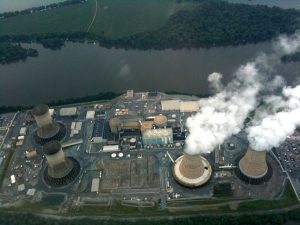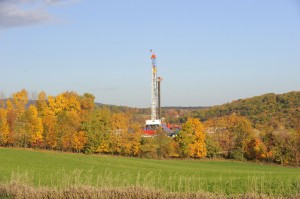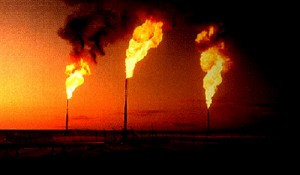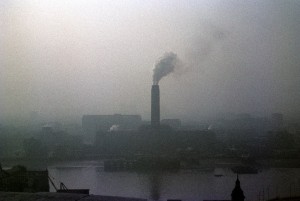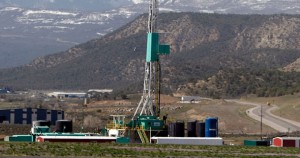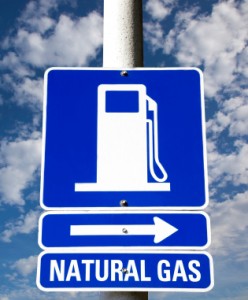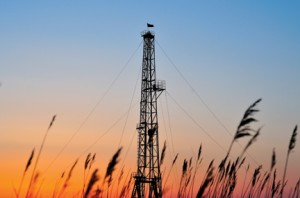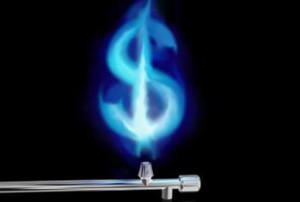16 item(s) were returned.
President
Kadak Associates, Inc.
If climate change is considered a real concern by most government officials, why are policymakers and politicians not acting to keep reliably operational nuclear plants from being prematurely shutdown? As most know, nuclear-generating plants, such as Three-mile Island in Pennsylvania, produce essentially zero carbon dioxide and other climate-altering gases. Once the United States had 104 operating nuclear plants producing over 60% of the nation’s clean energy. Today that number is down to 99. Nuclear plants used to generate about 20% of the electricity consumed. Today it is about 17% and declining. The most recently announced shutdown was the Three Mile… [more]
View InsightOn March 20th, following a lengthy public review process, Secretary of Interior Sally Jewell unveiled new federal regulations for hydraulic fracturing on federal lands. According to the Department of Interior, these new standards are designed to (1) improve safety, (2) protect groundwater by updating requirements for well-bore integrity, (3) ensure wastewater is disposed of properly and (4) require public disclosure by companies of chemicals. The regulations will go into effect on June 24th, 2015. The fracking boom put the U.S. on track to be a leading producer of oil and gas, yet most of the production has taken place on… [more]
View InsightThe David R. Atkinson Professor of Ecology & Environmental Biology
Cornell University
The EPA recently announced new regulations for methane emissions, taking an important first step in reducing the impact of this highly potent greenhouse gas (GHG). But the rule falls short, in part because EPA has systematically underestimated methane emissions from the oil and gas industry. Emissions from conventional natural gas are likely to be at least 2- to 3-fold greater than the EPA estimates, according to several recent studies. Recent literature also suggests emissions from shale gas may be twice as much greater still, based on an observed large increase in methane in the atmosphere over recent years, with the… [more]
View InsightCo-Founder
Fuel Freedom Foundation
The lack of alternative energy sources to fuel our vehicles and replace expensive oil, jeopardizes U.S. national security, forces Americans to pay more at the pump, and greatly represses our ability to reduce pollution and address climate change concerns. In my state of California, 74% of all emissions – including CO2, toxic pollutants, ozone forming emissions and more – come from petroleum. Oil accounts for 65% of California’s GHG emissions, compared to 33% from natural gas, and less than 2% from coal. Meanwhile, each year, the U.S. spends more than $600 billion to buy oil and oil products, which is… [more]
View InsightProfessor of Physics
University of Califoria at Berkeley
Some oppose shale gas because it is a fossil fuel, a source of carbon dioxide. Some are concerned by accounts of the fresh water it needs, by flaming faucets, by leaked “fugitive methane”, by pollution of the ground with fracking fluid and by damaging earthquakes. Although I believe that global warming is real, caused by humans, and a threat to our future, these concerns about shale gas are either largely false or can be addressed by appropriate regulation such as the controversial but ultimately positive developments in Illinois. Shale gas can not only reduce greenhouse gas emissions, but also reduce a deadly pollution known… [more]
View InsightThe boom in oil and gas production in the United States has largely been heralded as a strong economic stimulus for the economy. For example, in an August 2013 interview, McKinsey partner Scott Nyquist outlined huge economic returns through increases in capital investment and jobs in the manufacturing sector. “This is an exciting game changer for the US economy,” said Nyquist. “It can create jobs through investment in the energy sector itself and through the ripple effects in other parts of the economy. It will increase the overall GDP of the country, which will increase the overall wealth and well-being… [more]
View InsightLegislative Director
Congressman Matt Cartwright
The Resource Conservation and Recovery Act (RCRA) of 1976 requires the safe disposal of solid waste and hazardous materials. In 1980, RCRA was amended to exempt waste from the production and development of oil and natural gas (E&P waste). In 1988, the EPA issued a Regulatory Determination further exempting oil and natural gas producers from RCRA’s most stringent safety requirements. This left the task of regulating disposal of these wastes to states, which they have done to varying degrees. Recent reports show the extent of the problem and highlight the potentially fatal consequences. The regulatory determination was issued before fracking,… [more]
View InsightPennsylvania’s Act 13 of 2012 created a three-year Natural Gas Energy Development Program that will allocate $20 million in grant funds to purchase or convert vehicles to natural gas. The goal of Act 13 is “to help the state’s ongoing effort to move towards energy independence.” Last week, Pennsylvania’s Department of Environmental Protection issued the first $6.7 million of the competitive grant funds to 18 organizations across the state. The grant money comes from Pennsylvania’s drilling impact fee, which has raised $200 million from the gas industry flourishing in the Marcellus Shale. The grants are capped at 50 percent of… [more]
View InsightAccording to a recently released Harvard Law School report, the website FracFocus.org “fails as a regulatory compliance tool” for energy companies developing oil and gas wells using hydraulic fracturing. FracFocus, an online national hydraulic fracturing chemical registry managed by the Ground Water Protection Council and Interstate Oil and Gas Compact Commission, was established to provide the public with access to reported chemicals used for hydraulic fracturing within their area. Currently 11 of the 18 states that require disclosure of hydraulic fracturing chemicals allow companies to use FracFocus as their reporting method. FracFocus was also proposed by the Bureau of Land… [more]
View InsightProfessor of Public Policy
Georgia Institute of Technology
Thanks to breakthroughs in seismic imaging, horizontal drilling and hydraulic fracturing, the US in 2012 reduced its reliance on much dirtier coal by shifting to gas-fired power plants. This trend is expected to continue, spurred by low gas prices and increased regulation on coal. The move to shale gas is being heralded as a key to economic prosperity and a clean energy future. But there are other options for displacing baseload electricity from retired coal plants, the principals being nuclear, renewables and energy efficiency. Will the gas bonanza enable or postpone the transition to these cleaner options? While natural gas… [more]
View Insight